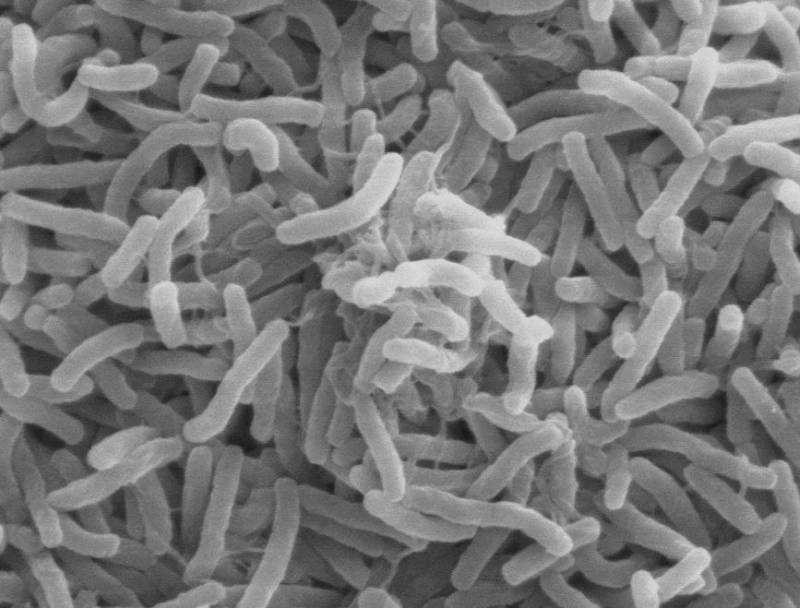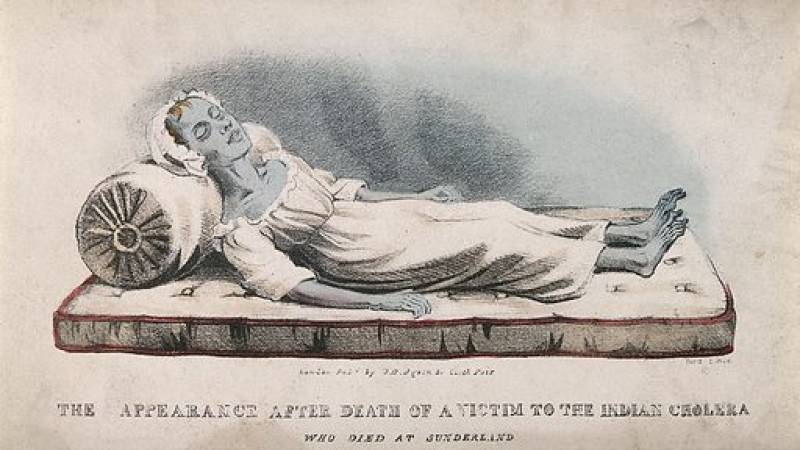article_detail
Date Published: 23/06/2022
ARCHIVED - Spain says its cholera case is not cholera but gastroenteritis caused by cholera bacterium
Health authorities have declared that the suspected case of cholera in Toledo is actually considered to be gastroenteritis due to non-toxic ‘Vibrio’

The Spanish Ministry of Health has specified that the case of cholera detected last week is not actually being considered as a case of cholera because “the pathogenic agent in this case is non-toxigenic Vibrio Cholerae and is therefore not considered a case of cholera, but of Vibrio gastroenteritis.”
The same sources have explained that after the case was detected, the Carlos III Epidemiology Health Institute was contacted to carry out a microbiological study which eventually ruled out a diagnosis of cholera due to the absence in the bacteria of the toxin that causes the disease.
Cholera is a diarrhoeal disease contracted by consuming water or food contaminated with the bacterium ‘Vibrio cholerae’, and a case was detected in Toledo last week. The case apparently involved a minor who became infected by drinking stagnant water on a farm, although there was no further information on whether there were more people affected or the exact source of the contamination.
The young woman was taken to hospital but has now been discharged.
Where cholera lives and how to avoid it
It is presumed that in this case the patient became infected by drinking water from a well, but cholera doesn’t only live in stagnant water. The bacterium that causes cholera is an environmental bacterium that can be found in unregulated streams, rivers and lakes, according to Raúl Rivas, professor of Microbiology at the University of Salamanca (USAL).
“It is therefore important to warn the population, who seem to have forgotten these things, that it is not a good idea to drink from places where the water is not controlled,” said Professor Rivas. “People go to the countryside and say ‘let’s drink water from this stream, which is very clear’. But you don’t know what it might contain in terms of microorganisms, parasites... To drink from a pipe lost in the middle of the mountain because ‘everyone drinks water here’, well, no, you have to be careful. And cook food well, seafood and crabs, many people catch them and they live in very specific areas that are sometimes not very healthy, so you have to cook them well to remove all the micro-organisms. And chlorinate vegetables collected in the wild.”.
Rivas points out that this case of cholera is different from what we have seen in recent months with Covid and monkeypox, which are viruses.
“Viruses need other cells to reproduce, to maintain their active cycle, but bacteria do not need to infect other organisms in order to reproduce, so bacteria can be found in the soil, in plants, in water, etc.”
Person-to-person transmission of cholera is rare, especially if basic hygienic measures are taken, such as washing hands after using the toilet.
A history of cholera epidemics
Cholera infection is generally benign and gives few symptoms, but it can sometimes be more serious. It is estimated that one in 20 infected persons may present symptoms, the most common of which are severe diarrhoea and vomiting. Fluid loss can lead to dehydration, which is the main cause of death in  cholera patients. The severity of the condition is that this dehydration can occur within hours.
cholera patients. The severity of the condition is that this dehydration can occur within hours.
 cholera patients. The severity of the condition is that this dehydration can occur within hours.
cholera patients. The severity of the condition is that this dehydration can occur within hours.Cholera has caused several epidemics in India, Europe and America, mostly in the 19th century, but there was an outbreak in several South American countries in the 1990s that spread rapidly. The disease has been rare in western countries in recent years,a nd has not been seen in Spain since 1979.
According to data from the European Centre for Disease Prevention and Control (ECDC), several countries in Africa and Asia have reported cholera outbreaks in 2021 and 2022. Major ongoing outbreaks are being reported in Afghanistan, Bangladesh, Cameroon, the Democratic Republic of Congo and Nigeria.
Since the last update on 29 April 2022, approximately 7,177 suspected cholera cases, including 102 deaths, have been reported worldwide. Countries reporting new cases since the previous update include Afghanistan, Cameroon, Democratic Republic of Congo, Malawi, Nigeria, South Sudan, Pakistan, Tanzania and Zambia.
Image 1: Wikimedia commons
Image 2: lookandlearn.com
Loading
Sign up for the Spanish News Today Editors Roundup Weekly Bulletin and get an email with all the week’s news straight to your inbox
Special offer: Subscribe now for 25% off (36.95 euros for 48 Bulletins)
OR
you can sign up to our FREE weekly roundup!
Read some of our recent bulletins:
25% Discount Special Offer subscription:
36.95€ for 48 Editor’s Weekly News Roundup bulletins!
Please CLICK THE BUTTON to subscribe.
(List price 3 months 12 Bulletins)
Read more stories from around Spain:
Contact Spanish News Today: Editorial 966 260 896 /
Office 968 018 268























